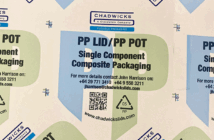An ingredient that aims to add an instant hangi flavour to kai (food) is first on the agenda for Nuka Limited – a start-up focussed on using science and technology to find solutions for underutilised Māori land.
Nuka Limited began when co-founder, Dr Kiri Dell of The University of Auckland’s faculty of Business and Economics, saw the potential in the native kānuka, which grew in abundance on her ancestral lands of Tai Rāwhiti/East Coast in Ruatōria.
She and Chemical and Materials Engineering Associate Professor Saeid Baroutian set out to capture the hidden flavours of kānuka and together with whānau from Ruatōria, transform its properties into multiple products, some of which are flavoursome ingredients for food.

Dr Kiri Dell of The University of Auckland’s faculty of Business and Economics
“My passion is Māori land and providing solutions for Māori landowners to create value from their whenua,” Dell says.
“I’ve always looked at kānuka because I knew we had abundance and we’d be able to sell heaps of it and the wildness of it.
“Kānuka was basically being ignored. I kept pursuing ideas trying to find ways in which it could be used and there was a bit of resistance to that. I still felt strongly about kānuka because there was just so much of it. We went from there on the path of discovery.”
The method of turning kānuka into liquid smoke is done through a process called fast pyrolysis which is a fast-heating process. The wood chips are quickly heated to 400-500 C without oxygen and thermally decomposed into liquid smoke.
This process also eliminates polycyclic aromatic hydrocarbon (PAHs) which is known as carcinogenic to humans.

Associate Professor Saeid Baroutian of The University of Auckland’s Chemical and Materials Engineering faculty
Associate Professor Baroutian says the technology used is not new but rather repurposed for food additive production.
“This technology has been used for bioenergy production. Through this process, we can produce two types of liquid products. One is oil-based which can be used as diesel fuel or petrol and the other is a water-soluble product. For bioenergy production, people target the oil fraction, but we redesigned this process to maximise water-soluble liquid production. So, we did quite a lot of optimisation design, engineering design, and research on the technology. This process is quite high yield, very efficient, and of course environmentally friendly.”
The result is an ingredient with not only a pleasant aroma and taste but antioxidants and antimicrobial agents which help to preserve and extend the shelf life of treated products as well.
Once the research and development stages were complete, the project moved on to the New Zealand Food Innovation Network’s Auckland incubation facility, FoodBowl, which provided food grade premises to make the product and then also sell to potential customers.
So far interested companies such as plant-based meat company Plant-Tech Nation and nut-butter company Fix and Fogg have signed up for the first production run.
The product is now moving into the scale-up phase, and it is expected to begin development in Ruatōria from October.
“It’s about creating a solution, creating some kind of economy that suits the people and suits the land,” Dell says.




























































































